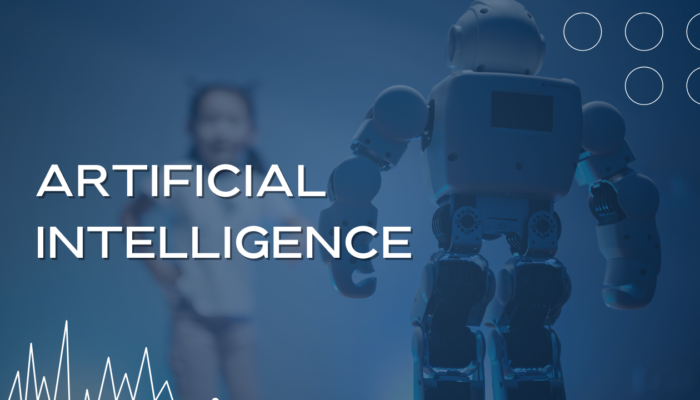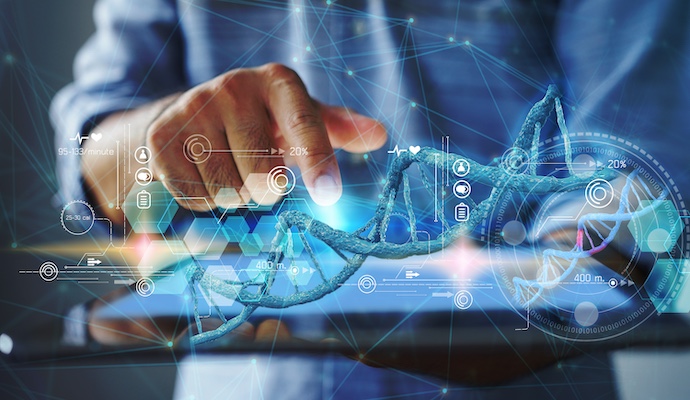Towven.com – In a world where scientific advancements are constantly pushing the boundaries of possibility, biotechnology stands at the forefront, revolutionizing healthcare and beyond.
From personalized medicine to sustainable agriculture, the applications of biotechnology are vast and ever-expanding.
In this article, we’ll delve into some of the most groundbreaking breakthroughs in biotechnology, exploring how they are reshaping our world and improving lives.
Understanding Biotechnology
Biotechnology is the harnessing of biological systems and processes for technological advancements.
It involves the manipulation of living organisms or their components to develop products and technologies that improve our lives.
From healthcare to agriculture and environmental conservation, biotechnology has far-reaching implications.
Here’s a breakdown of some key aspects:
- Genetic Engineering: This involves manipulating the genetic material of organisms to achieve desirable traits. Techniques such as gene editing (e.g., CRISPR-Cas9) allow precise modifications in the DNA of plants, animals, and even humans, leading to advancements in agriculture, medicine, and bioremediation.
- Medical Biotechnology: This branch focuses on using biotechnological tools for healthcare purposes. It includes the development of pharmaceuticals, vaccines, diagnostic tests, and therapies. Biotech plays a crucial role in the treatment of diseases like cancer, genetic disorders, and infectious diseases.
- Industrial Biotechnology: This involves using living cells or their components to produce industrial products. Examples include the production of biofuels, bioplastics, enzymes, and other chemicals through fermentation, enzymatic processes, or synthetic biology.
- Agricultural Biotechnology: Agricultural biotech aims to enhance crop yield, quality, and resilience to pests, diseases, and environmental stresses. Genetically modified (GM) crops are one of the prominent applications, along with marker-assisted breeding, tissue culture, and gene editing techniques.
- Environmental Biotechnology: This area focuses on using biological processes to solve environmental issues. Applications include bioremediation (using microorganisms to clean up pollutants), waste treatment, and the development of sustainable practices to reduce pollution and conserve resources.
- Bioinformatics: Bioinformatics involves the application of computer science and statistical techniques to analyze and interpret biological data, such as DNA sequences, protein structures, and gene expression patterns. It’s crucial for understanding complex biological systems and designing novel biotechnological solutions.
- Ethical and Regulatory Considerations: Biotechnology raises ethical concerns related to issues like genetic privacy, equitable access to technologies, and the potential consequences of genetic modification. Regulatory frameworks are essential to ensure the safety, efficacy, and responsible use of biotechnological products and techniques.
Understanding biotechnology requires knowledge of biology, chemistry, and other related disciplines, as well as an awareness of the ethical, social, and regulatory aspects shaping its development and application.
It’s a rapidly evolving field with the potential to address diverse challenges and improve the quality of life globally.
Genomic Editing: CRISPR-Cas9
CRISPR-Cas9, short for Clustered Regularly Interspaced Short Palindromic Repeats and CRISPR-associated protein 9, is a revolutionary tool in genomic editing.
It is a powerful technology that allows researchers to edit parts of the genome by removing, adding, or altering sections of the DNA sequence.
CRISPR-Cas9 has garnered significant attention and excitement due to its simplicity, efficiency, and versatility in comparison to previous genome editing techniques.
Here’s how it works:
- Guide RNA (gRNA) Design: A small piece of RNA called the guide RNA (gRNA) is designed to match the target DNA sequence. This gRNA serves as a guide to direct the Cas9 enzyme to the specific location in the genome that needs to be edited.
- Cas9 Nuclease: The Cas9 enzyme, which acts as molecular scissors, is then programmed to cut the DNA at the targeted location. Cas9 is derived from bacteria and is capable of cleaving both strands of the DNA molecule at the precise site specified by the gRNA.
- DNA Repair Mechanisms: After the DNA is cut, the cell’s natural DNA repair mechanisms come into play. There are two primary repair pathways:
- Non-Homologous End Joining (NHEJ): In NHEJ, the broken ends of the DNA are rejoined, often resulting in small insertions or deletions (indels) at the site of the repair. These indels can disrupt the function of the gene, potentially leading to gene knockout.
- Homology-Directed Repair (HDR): HDR occurs when a DNA template with a desired sequence is provided along with the CRISPR-Cas9 components. This template can be used to introduce specific changes or insertions at the target site.
CRISPR-Cas9 has a wide range of applications across various fields:
- Biomedical Research: CRISPR-Cas9 is widely used in research to study gene function, model genetic diseases, and develop potential therapies for genetic disorders.
- Agriculture: CRISPR-Cas9 holds promise for creating crops with enhanced traits, such as improved yield, disease resistance, and nutritional value.
- Therapeutic Applications: In medicine, CRISPR-Cas9 is being explored for potential use in treating genetic diseases, cancer, and infectious diseases. However, therapeutic applications in humans are still in the early stages of development and require further research and clinical trials to ensure safety and efficacy.
- Biotechnology: CRISPR-Cas9 is also being used in biotechnology for applications such as creating genetically modified organisms (GMOs), engineering microorganisms for industrial processes, and developing novel biofuels.
While CRISPR-Cas9 offers immense potential, there are also ethical and safety considerations, particularly regarding off-target effects, unintended consequences, and the potential for misuse.
Researchers continue to work on improving the precision and efficiency of CRISPR-Cas9 and developing robust ethical frameworks to guide its responsible use.
Synthetic Biology: Engineering Life
Synthetic biology involves designing and constructing biological devices and systems for useful purposes. It’s like programming cells to perform specific functions, akin to writing code for a computer.
This field opens doors to creating novel drugs, biofuels, and biosensors, pushing the boundaries of what’s possible in biotechnology.
Biopharmaceuticals: Transforming Medicine
Biopharmaceuticals are drugs produced using biotechnology. Unlike traditional chemical-based drugs, biopharmaceuticals are derived from living organisms or their components.
They offer targeted therapies with fewer side effects and have revolutionized the treatment of diseases like cancer, diabetes, and autoimmune disorders.
Regenerative Medicine: Healing from Within
Regenerative medicine aims to restore or replace damaged tissues and organs, harnessing the body’s natural ability to heal itself.
Stem cell therapy, tissue engineering, and gene editing play pivotal roles in this field, offering hope for conditions previously considered incurable, such as spinal cord injuries and heart disease.
Agricultural Biotechnology: Feeding the Future
Agricultural biotechnology utilizes genetic engineering to enhance crop traits such as yield, nutritional content, and resistance to pests and diseases.
By developing genetically modified organisms (GMOs), scientists can address food security challenges and promote sustainable agriculture practices to feed a growing global population.
Biofuels: Sustainable Energy Sources
Biofuels are renewable energy sources derived from organic materials like plants and algae.
Biotechnology enables the production of biofuels through processes such as fermentation and enzymatic conversion.
By reducing reliance on fossil fuels, biofuels offer a more sustainable alternative, mitigating climate change and reducing greenhouse gas emissions.
Environmental Cleanup: Bioremediation
Bioremediation utilizes microorganisms to degrade pollutants and contaminants in the environment.
Through biotechnology, scientists can engineer microbes with enhanced biodegradation capabilities, facilitating the cleanup of soil, water, and air pollution.
This eco-friendly approach offers a promising solution to environmental challenges.
Nanobiotechnology: Tiny Solutions for Big Challenges
Nanobiotechnology merges nanotechnology with biology, leveraging nanoscale materials for various applications in medicine, diagnostics, and environmental monitoring.
Nano-sized particles and devices enable precise targeting and delivery of drugs, detection of biomarkers, and development of advanced medical imaging techniques.
Ethical Considerations: Navigating the Boundaries
As biotechnology continues to advance, ethical considerations become increasingly important.
Questions arise regarding the implications of genetic manipulation, the equitable distribution of biotechnological benefits, and the protection of biodiversity.
It’s crucial for society to engage in informed discussions and establish ethical frameworks to guide biotechnological innovation responsibly.
The Future of Biotechnology: What Lies Ahead
The future of biotechnology holds immense promise and potential. As technology evolves, we can expect further breakthroughs in areas such as personalized medicine, bioinformatics, and bio-inspired engineering.
Collaboration across disciplines will drive innovation, leading to transformative solutions to global challenges in healthcare, agriculture, energy, and the environment.
Conclusion
In conclusion, biotechnology stands as a beacon of hope, reshaping healthcare, agriculture, energy, and the environment.
From CRISPR-Cas9 to regenerative medicine and beyond, the possibilities are limitless. However, ethical considerations must guide our journey, ensuring that biotechnological advancements benefit humanity and the planet.
Frequently Asked Questions
- What are the potential risks associated with CRISPR-Cas9 gene editing? CRISPR-Cas9 gene editing holds great promise, but it also comes with potential risks such as off-target mutations and unintended consequences. Rigorous safety protocols and ethical oversight are essential to mitigate these risks.
- How do biopharmaceuticals differ from traditional drugs? Biopharmaceuticals are derived from living organisms or their components, whereas traditional drugs are chemical compounds. Biopharmaceuticals offer targeted therapies with fewer side effects and greater efficacy in many cases.
- Can agricultural biotechnology help address food security challenges? Yes, agricultural biotechnology plays a crucial role in addressing food security challenges by developing crops with enhanced traits such as yield, nutritional content, and resistance to pests and diseases.
- What are the potential applications of nanobiotechnology in medicine? Nanobiotechnology has diverse applications in medicine, including targeted drug delivery, diagnostic imaging, and regenerative medicine. Nano-sized particles enable precise interventions at the cellular and molecular levels.
- How can society ensure the responsible use of biotechnology? Society can ensure the responsible use of biotechnology through ethical oversight, public engagement, and regulatory frameworks. It’s essential to balance innovation with ethical considerations to maximize the benefits of biotechnological advancements while minimizing potential risks.







